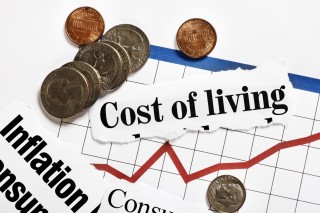Nigeria’s inflation grew strongly in 2016, propelled by surges in housing, water, and electricity and with an increase in food index, inflation continued to an uptick for the 11-consecutive month. The present fall in global oil prices since 2014 as resulted in the rising inflation as the country grapples with its first recession in 25 years.
According to Oluwakemi Akinde, the Chief Executive Officer of Meristem Securities, the Consumer Price Index hit 18.55 percent for December which was triggered by the festivities and naira depreciation. The average exchange rate in the parallel market was 487 naira relative to 466 naira to a dollar in November.
Notwithstanding, for the first 2 weeks in January, no major shock has been experienced except for a change in gas prices. Apart from that, prices have fairly been stable. Akinde further said going by history January inflation rate is always stable except for 2012, during the OCCUPY NIGERIA and 2015, when the foreign exchange crisis was brewing but other than that the inflation rate is expected to be in the neighborhood of the 18.55 percent.
Inflation expanded to 0.1855 from 0.1848 recorded in November 2016, the National Bureau of Statistics said on Friday. This is the highest rate since 2006, beating the government’s own prediction of between 0.171 and 0.18.
The National Bureau of Statistics (NBS) report for December 2016 showed that Food Index rose to 17.39 percent (year-on-year), against 17.19 percent the rate recorded in November up by 0.20 percent.
However, in December, major food sub-indexes increased, with soft drinks recording the slowest pace of increase at 0.0766 (year-on-year) while communications and Restaurants and Hotels recorded the slowest pace of growth, growing at 5.33 percent and 8.91 percent (year-on-year) respectively.
The second quarter report from the NBS showed Nigeria’s economy had glided into recession, the Gross Domestic Product fell by 2.06 percent then, but the federal government is looking for ways to address the recession to reduce the burden on its citizens.
Not long ago, reports about the World Bank forecast for Nigeria in 2017 indicated that the country will get out of recession and grow its Gross Domestic Product by one percent. In this accord, the World Bank Global Economic Prospects report released shows that the sub-Saharan African growth is projected to slightly increase by 2.9 percent, as the country continues to adjust to lower commodity prices.








